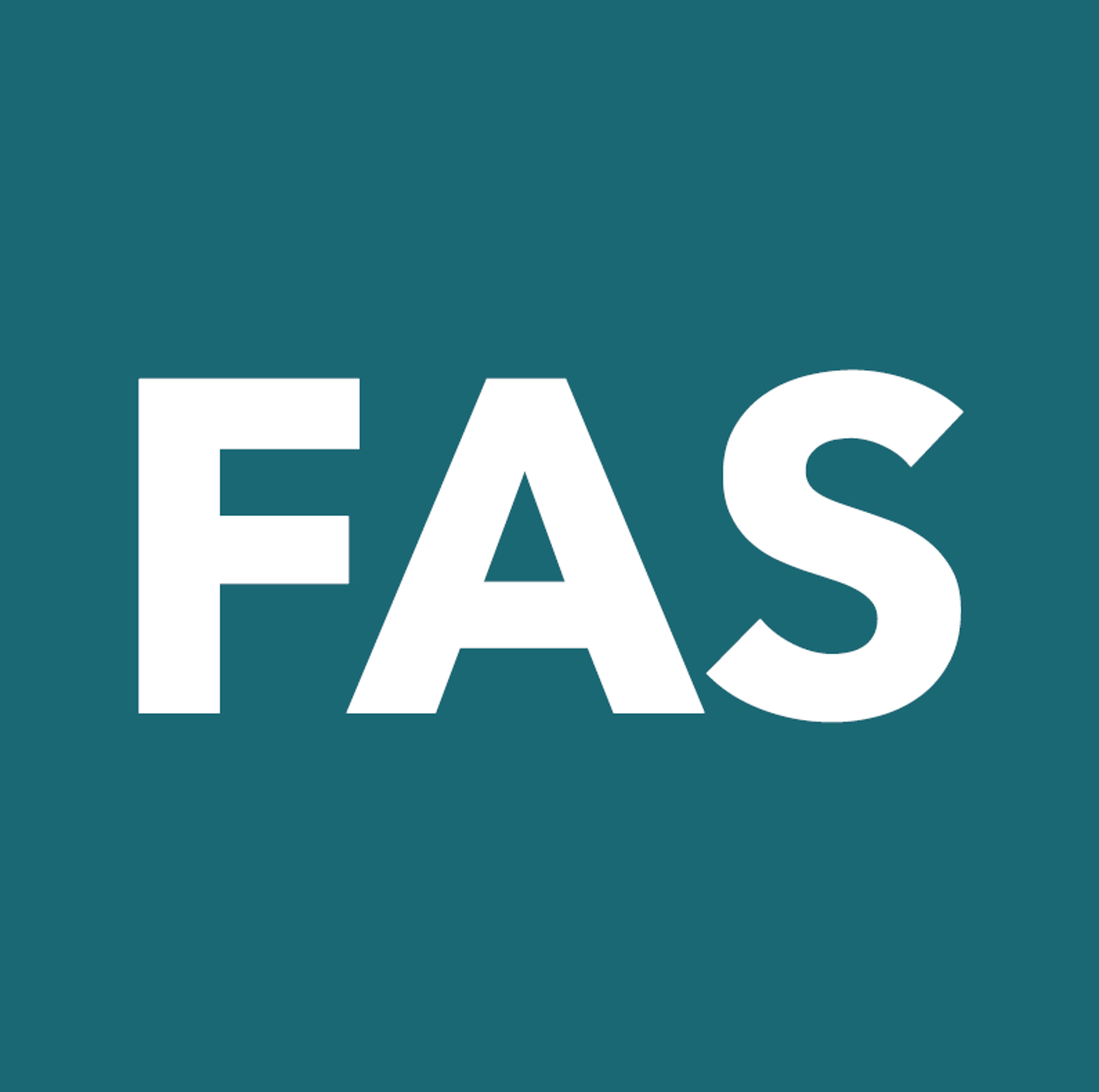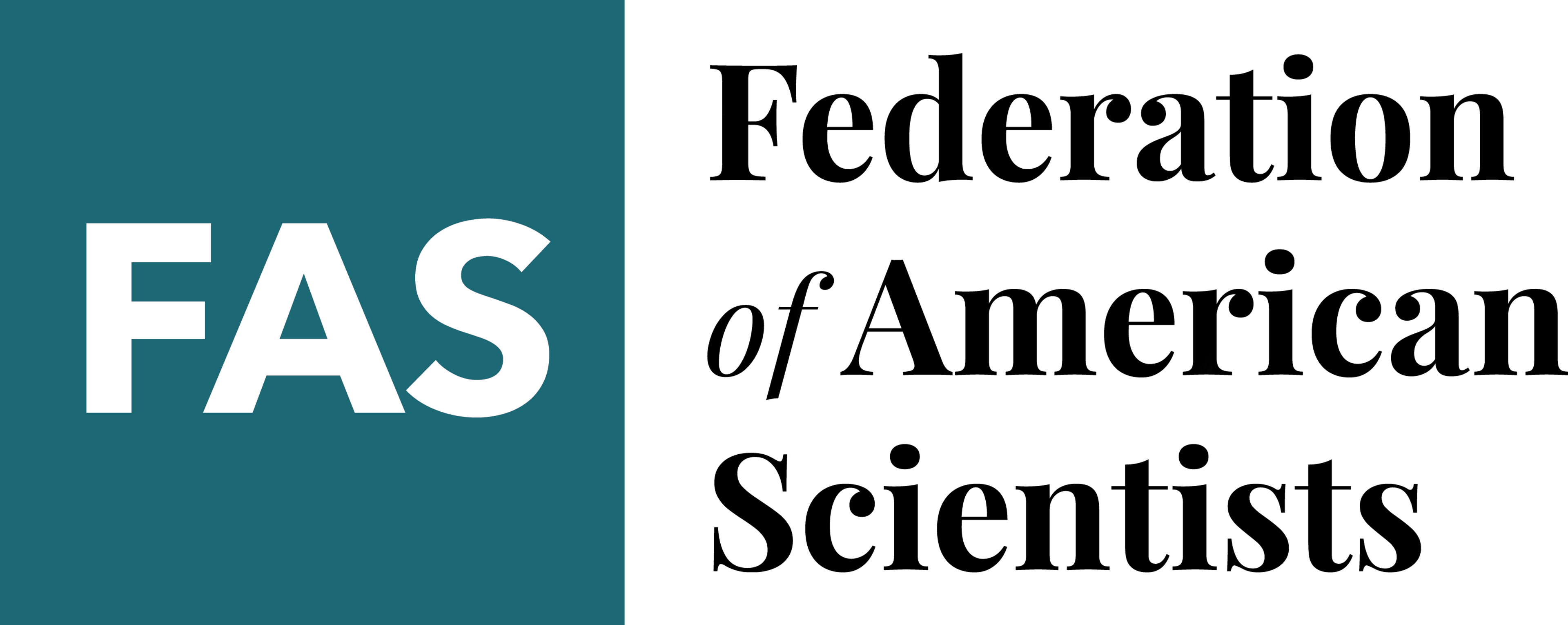
Federation of American Scientists
Nuclear Information Project
The Federation of American Scientists is a nonprofit policy research and advocacy organisation founded in 1945.

What problem is the Federation of American Scientists working on?
The Federation of American Scientists (FAS) envisions a world where cutting-edge science, technology, ideas and talent are deployed to solve the biggest challenges of our time. It embeds science, technology, innovation, and experience into government and public discourse in order to build a healthy, safe, prosperous, and equitable society.
FAS was founded in 1945 to meet national security challenges with evidence-based, scientifically driven, and nonpartisan policy, analysis, and research. After the devastating bombings of Hiroshima and Nagasaki, a group of atomic researchers, deeply concerned about the use of science for malice, created an organisation committed to using science and technology to benefit humanity. The group they created — the Federation of Atomic Scientists — soon became the Federation of American Scientists in recognition of the hundreds of scientists across diverse disciplines who joined together to advance science policy and counter scientific misinformation.
What does FAS’s Nuclear Information Project do?
FAS’s Nuclear Information Project provides the public with reliable information about the status and trends of the nuclear weapons arsenals of the world’s nuclear-armed countries.
The Project, called “one of the most widely sourced… for nuclear warhead counts” by the Washington Post, uses open sources such as official documents, testimonies, previously undisclosed information obtained through the Freedom of Information Act, as well as independent analysis of commercial satellite imagery as the basis for developing the best available unclassified estimates of the status and trends of nuclear weapons worldwide.
What information does Giving What We Can have about the cost-effectiveness of the Nuclear Information Project?
The impact-focused evaluator Longview Philanthropy has granted to the Nuclear Information Project.
According to FAS:
- On average, the data generated by the Nuclear Information Project is cited in external analysis every other day.
- The Nuclear Notebook on Russia’s nuclear forces in 2022 broke all previous Nuclear Notebook records by a significant margin, with over 300,000 unique reads within the first three months of publication.
- Nuclear Information Project data in the SIPRI Yearbook was covered in over 4,500 distinct online news articles within the first five days of its publication, including notable international outlets like CNN, Reuters, the Associated Press, The Guardian, Deutsche Welle, Al Jazeera, Le Monde, and many others.
Note that we and Longview are both part of Effective Ventures — see our transparency page.
Please note that GWWC does not evaluate individual charities. Our recommendations are based on the research of third-party, impact-focused charity evaluators our research team has found to be particularly well-suited to help donors do the most good per dollar, according to their recent evaluator investigations. Our other supported programs are those that align with our charitable purpose — they are working on a high-impact problem and take a reasonably promising approach (based on publicly-available information).
At Giving What We Can, we focus on the effectiveness of an organisation's work -- what the organisation is actually doing and whether their programs are making a big difference. Some others in the charity recommendation space focus instead on the ratio of admin costs to program spending, part of what we’ve termed the “overhead myth.” See why overhead isn’t the full story and learn more about our approach to charity evaluation.